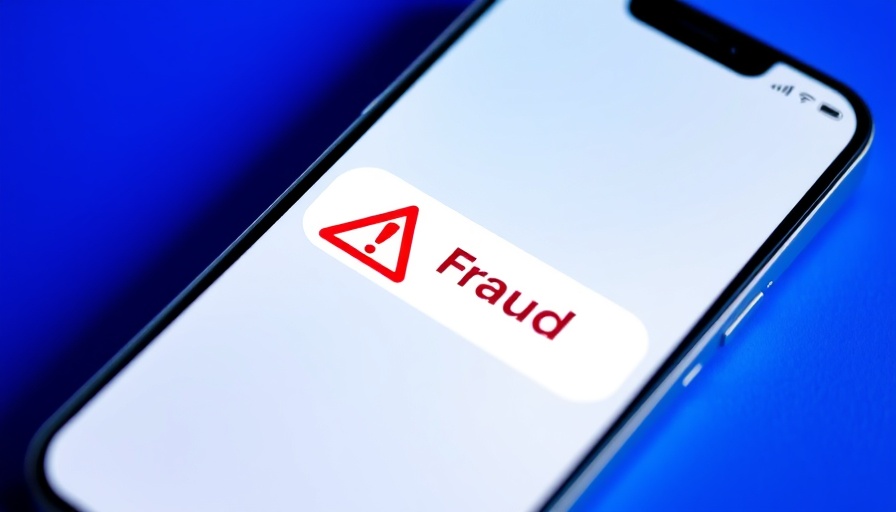
Understanding the Latest DMV Text Scams
In a world where text messages are often the quickest way to communicate, scammers are exploiting this reliance to target unsuspecting victims. One of the latest schemes involves text messages purportedly from the DMV, making alarming claims about your driving record. These fraudulent messages can strike fear in the hearts of many drivers, particularly those who may worry about outstanding fines or license issues. But don’t let these tricks keep you up at night. Understanding the telltale signs of a scam can help you regain your peace of mind.
Common Features of DMV Scam Texts
The messages typically contain unsettling threats about license suspensions or vehicle registration cancellations due to alleged unpaid fines. Unfortunately, these texts are designed to provoke an urgent response. Most texts will claim to be from your state's DMV, using language that induces panic, like threatening fines or even prosecution. According to First National Bank, here are some red flags to watch for:
- Messages implying immediate action is required, combined with threatening language.
- Links that direct you to websites asking for sensitive information, such as credit card details.
- Spelling mistakes or mismatched sender details, which all signal fraudulent intent.
It’s essential to remember that no legitimate DMV communicates via text for enforcement. If you receive such a message, the best course of action is to put it down and verify through official channels.
What to Do When You Receive a Scam Text
If you find yourself receiving such a message, it’s important to remain calm and take the right steps. First and foremost, do not click on any links or provide any personal information. If you've unwittingly engaged, contact your bank and monitor your accounts closely for any suspicious activity. Consider freezing your credit; it's an effective way to prevent any identity theft from escalating. Additionally, report the scam to authorities, like the FTC, to help raise awareness about these fraudulent practices. Knowledge and preventative measures can ultimately protect you and others.
Protecting Yourself from Future Scams
Staying vigilant against scams requires a few mindful practices that can safeguard your information long-term:
- Verify Communications: Always seek confirmation from official sources, such as the DMV’s website, whenever in doubt.
- Educate Yourself: Understanding the latest scams can help you spot them quickly. Resources like the Better Business Bureau and local news can be invaluable in staying informed.
- Empower Your Neighbors: Sharing knowledge about scams can create a protective net in your community. Help others recognize these threats early.
As homeowners, it’s critical to incorporate these practices not just for personal security, but also to enhance the well-being of your whole community, ultimately fostering a safer environment.
Final Thoughts: Vigilance is Your Best Defense
Scammers are crafty, and their tactics evolve constantly. By maintaining vigilance and educating yourself on the signs of scams, you are taking proactive steps to protect both yourself and your household. Share this knowledge with friends, family, and neighbors. Empowerment through awareness is essential in today’s fast-paced digital landscape.
Engage with your community by discussing these threats and sharing prevention tips. Together, we can create a network of informed and prepared individuals who were never caught off guard by the next scam text. Remember, whenever in doubt, always choose verification over reaction.
 Add Row
Add Row  Add
Add 




Write A Comment